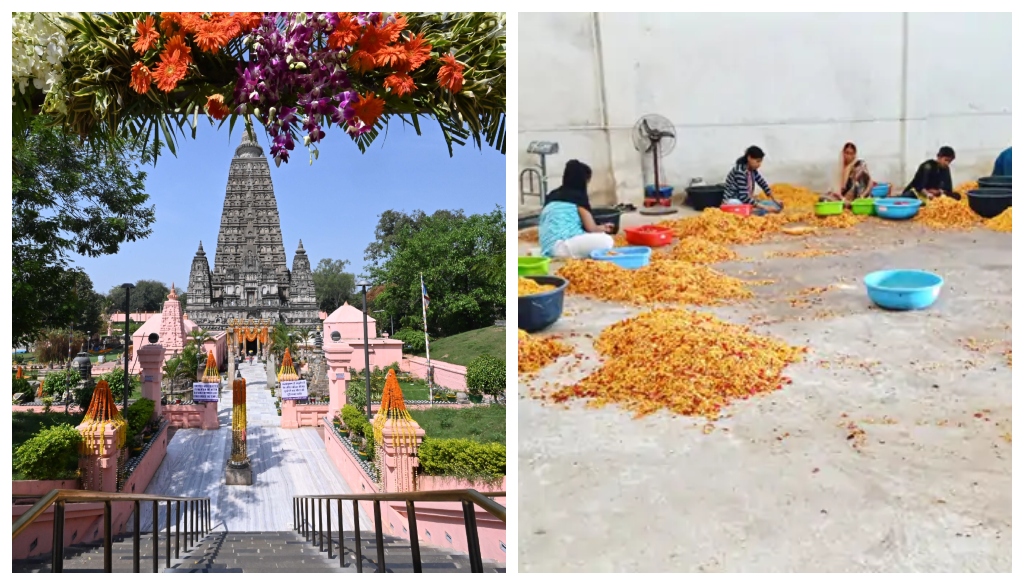Temple Flowers to Fragrant Incense: Bodh Gaya’s Eco-Friendly Initiative Transforms Offerings into Jobs

Bodh Gaya: In the heart of Bodh Gaya, where thousands of devotees offer flowers daily at the Mahabodhi Temple, a unique initiative is transforming religious offerings into an eco-friendly solution. What was once discarded as waste is now being repurposed into fragrant incense sticks and dhoop battis, thanks to a project spearheaded by Phool.com, a startup incubated at IIT Kanpur.
Launched in November 2024, the initiative is a collaboration between Phool.com, the Bodh Gaya Temple Management Committee (BTMC), and the Gaya District Administration. The project aims to reduce temple waste while creating sustainable employment opportunities for the local community.
Turning Devotion into Sustainability
For years, temple flowers have been a symbol of devotion, but their disposal has posed an environmental challenge. Traditionally, these flowers were either thrown into rivers or left to decay, contributing to pollution. Phool.com has introduced an innovative model that not only prevents waste but also adds value to it. The collected flowers are processed at a dedicated facility in Dhanawan, Bodh Gaya, where they are transformed into incense sticks through a charcoal-free technique.
This process not only reduces the environmental footprint but also ensures a sustainable livelihood for many. Currently, the facility processes around 350 kilograms of flowers daily, with a total production capacity of 1.6 tonnes per day. An investment of Rs 1.8 crore has enabled the establishment of the plant, which currently employs 42 women, with plans to expand the workforce to 70 in the near future.
Empowering the Local Community
The initiative is not just about sustainability; it is also about empowerment. The women working at the facility, many of whom come from underprivileged backgrounds, now have a steady source of income. Their involvement in the project allows them to contribute to their households while participating in an environmentally conscious movement.
“This project has given us financial independence and a sense of purpose,” says one of the women employed at the plant. “We are not only earning but also contributing to a cleaner environment.”
A Step Towards a Greener Future
The impact of this initiative extends beyond temple premises. By introducing a structured system for floral waste management, Phool.com has set a precedent for other religious sites across India. The success of the Bodh Gaya project could inspire similar models in temples nationwide, promoting a more sustainable approach to religious offerings.





